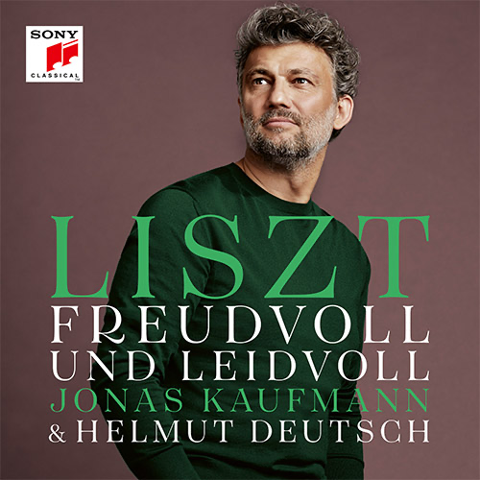LISZT FREUDVOLL UND LEIDVOLL – JONAS KAUFMANN & HELMUT DEUTSCH
Freudvoll und Leidvoll’ by Jonas Kaufmann – An Ambitious Yet Unfulfilled Journey
Richard Phillips, September 2021
Liszt’s ‘Freudvoll und Leidvoll’, performed by the magnetic Heldentenor Jonas Kaufmann, promises to be an exciting exploration of the legendary composer’s charismatic songs. However, despite the potential, this album falls short of its promises due to several factors that hinder its full potential.
The intimate sound picture of the album, both for Kaufmann’s stentorian tenor moments and pianist Helmut Deutsch, further detracts from the sense of expanse that Liszt’s music typically demands. Liszt’s songs are characterized by a narrative sense that utilizes a variety of musical ideas in a concise space, but Kaufmann and Deutsch struggle to maintain cohesiveness in their interpretations. They often go for maximum impact in every verse, resulting in a lack of subtlety and depth. Liszt’s pictorial effects lose their immersive quality and become mere window dressing, missing the opportunity to open doors into a larger musical world.
Recorded in June 2020, one of the key drawbacks is Kaufmann’s vocal state during the sessions. Although he tries to scale back his voice for the more delicate pieces, some songs suffer from an aggressive rather than a heroic effect. Kaufmann’s vocal fragility becomes evident in the more tender songs, where he fails to deliver the desired emotional depth. This contrasts with the more lyrical approach of Allan Clayton in Hyperion’s complete Liszt songs, which proves more fitting for the music’s expressive range.
While Kaufmann is undoubtedly a credible lieder recitalist, his talents are better suited to Schubert’s visionary ‘Winterreise’ than to the ardent Petrarch Sonnets. In these Petrarch Sonnets, his lack of rhetorical authenticity is evident. Additionally, his use of a micro voice, what some might call a “Helden-whisper,” is appropriate in certain instances, such as in ‘Über allen Gipfeln ist Ruh.’ However, it robs him of the vocal colors and range of articulation needed to fully embody the songs in other moments.
The album does include some evergreens, like the Petrarch Sonnets and ‘O Lieb, solang du lieben kannst,’ which offer enjoyable moments for listeners. However, it struggles in comparison to other less-charted realms of Liszt’s compositions. Songs like ‘Freudvoll und Leidvoll’ showcase a different side of the composer, but Kaufmann and Deutsch fail to fully explore the intricacies of these lesser-known works.
Despite its shortcomings, one cannot deny the courage of great artists like Kaufmann, who venture outside their comfort zones. While this Liszt recital may not reach the heights expected from such talented performers, it serves as a testament to Kaufmann’s vocal prowess and the complexities of interpreting Liszt’s music. For those seeking a more coherent and nuanced Liszt experience, other recordings, such as Hyperion’s series with Angelika Kirchschlager and Julius Drake, might prove more rewarding.

